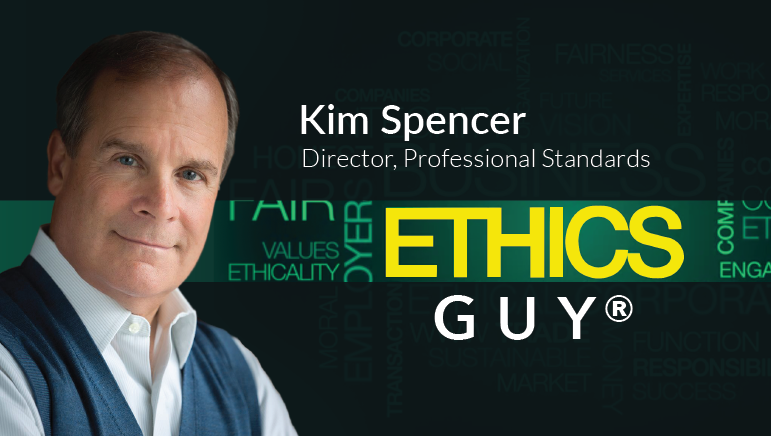Ethics Guy®: Remember what Mum used to say?

Visit almost any news site or blog and you’ll likely find articles describing the difficulties anyone can find themselves in after having made intemperate remarks or expressing unpopular opinions.
Government ministers have lost their jobs. CEOs, executives, and college instructors, too. Or if they didn’t lose their jobs, they often found themselves in an uncomfortable place for making public remarks that some find objectionable.
This shouldn’t be news to anyone. But the times being what they are, let’s take a few minutes for another reminder about our professional standards and what they have to say about our public conduct, including what we say about others in our professional and personal capacities.
REALTOR® Code Article 19 – Discrediting Another Registrant; Article 20, Conduct Unbecoming and Rules of Cooperation, 6.08 all have something to say about this. For that matter, so does Section 35(2) of the Real Estate Services Act.
Of relevance is our Real Estate Errors and Omissions Insurance Indemnity Plan’s exclusion from coverage for claims “relating to or arising out of libel or slander, discrimination, restraint of trade, wrongful entry or eviction or other invasion of the right of private property or private occupancy.”
Also relevant, since our profession depends on having a good reputation, is the court of public opinion, which often goes straight from finger-pointing to a public execution with nothing in between, not even due process.
Keep in mind, too, that all this pertains to anything you say or do today, but also anything you have said, written, or done in the past. You never know what might come back to haunt you—something that won’t fare very well in today’s climate of instant outrage.
The Internet never forgets. Don’t you ever forget that. How many times have you read or seen stories about someone being taken to task today for something they said or did years ago? I doubt that anyone who has been through that—guilty or not guilty—would recommend taking risks with behaviour that may come back to bite you.
So why, then, do so many of us forget ourselves, so often?
I don’t know. But I do know that some find a certain pleasure (the French call it a frizzon) from making a clever remark or riposte. The trouble is, sometimes these turn out to be not so clever. And sometimes they’re perceived as being hurtful or obnoxious.
Is being “clever” in this way worth it in the current times? I don’t think so. Ten seconds of typing pleasure or making a so-called witty response to something could be followed by pain over days, even months, until others forget and move on to something else. Ditto for making an off-the-cuff remark in a virtual or in-person meeting.
Some people seem to find it impossible to resist saying what’s just popped into their heads, or weighing in on something they don’t know anything about, or commenting on something when only one side of the story has been revealed. It’s human nature, I suppose.
How many times in history has someone, somewhere, said something that caused hurt to others? Think about how many grains of sand there are on the beach. That’s how many. And there are probably only a few less grains of sand to equal the regret that comes later with, “I wish I hadn’t said that.”
Remember, there are no special rules for what you say online. Our professional standards apply everywhere, including social media. And increasingly, they’re applied with vigour for what we say and do when we’re off the clock. The separation between a person’s private and professional life is pretty much gone. Now, with the amplification that comes from social media, our professional and private lives have been merged into a very untidy, sometimes vulnerable, mess that’s there for all to see and to comment on.
Think about this: Your colleagues, your board, the BCFSA, and the court of public opinion expect higher standards from us. We like to call ourselves professionals, but that comes with a price. Temperate, measured remarks may be okay, but frankly, I suggest keeping your opinions to yourself.
Remember what Mum used to say? “If you can’t say something nice, don’t say anything at all.”
I wish you the best.